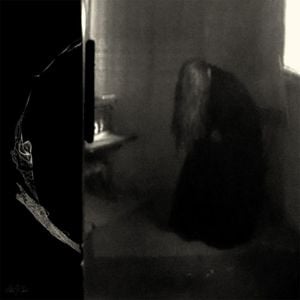By Scarlett Hall

Singer and artist Hayden Anhedönia, who records under the alias Ethel Cain, rose to popularity after the release of her first album Preacher’s Daughter in 2022, an album full of controversial ideas that don’t exactly scream “mainstream.” Despite that, millions of new fans waited until January of this year anticipating the release of her newest EP, Perverts.
Listeners were severely disappointed after the EP’s release, quickly realizing it was nothing like the album that brought her fame. The two pieces released under the name “Ethel Cain” are completely polarized. While Preacher’s Daughter is an album of storytelling, gorgeous ballads, and powerful singing, Perverts is nine tracks of hardly human voices, horrifying roaming noises, and uncomfortable symbolism regarding the concept of sexuality and sin. Perverts is a horrific experience and difficult to audibly enjoy, but in spite of that is an elaborate piece of art exploring the concept of perversion, deliberately challenging Hayden Anhedönia, or Ethel Cain’s popularity.
The sophomore EP Perverts intricately talks about the spectrum of sex and sin. Rather than falling back on the black and white portrayal of what one normally thinks of when it comes to perversion, Anhedönia explores religion, shame, guilt, and pleasure together using a combination of lyrics and sound. The 90-minute-long EP includes tracks like
“Housofpsychoticwomn” and “Pulldrone,” each being around 14 minutes of what Apple Music describes as “depersonalized spoken word” that makes the listener feel nothing short of uneasy, with the former repeating the phrase “I love you,” over 120 times.
Every so often the album includes a track like “Vacillator” or “Etienne” that feel like a breath of fresh air, with “Etienne” being the only track including a piano ballad in the entire EP. Anhedönia posted on Tumblr saying, “there’s no condemnation or mockery or bias on perverts anywhere. i [sic] like objective portrayals. that [sic] way you can decide how you feel about it.”
The album is an experimental sound album, like Sufjan Stephen’s Aporia. Aporia is another project whose purpose is to immerse the listener into a listening experience, with 20 tracks of only sound and few lyrics. Unlike Aporia, with only one-track including lyrics, Perverts features lyrics frequently throughout the 90-minutes of sound. Anhedönia uses a mix of experimental noises and haunting lyrics to convey the complexity of perversion, sex, and sin. The sound of the album wasn’t made to break records or to play on the radio, but to purposely evoke niche feelings regarding the concept of perversion.
Anhedönia explores the spectrum of sexuality and sin through multiple of her songs, including “Perverts” and “Housofpsychoticwomn” where she talks about masturbation and love, but uses an extreme example in the second track of the album called “Punish.” During “Punish,” she directly mentions Leon Gary Plauché, a man known for publicly killing child molester Jeffery Doucet for kidnapping and abusing his son. She seems to use the infamous killing as a metaphor for a pervert’s mind, speaking from the perspective of Doucet, singing, “In the morning I will mar myself again. He was a natural Plauché saying ‘You won’t forget this.’” She continues later in the second verse, singing, “only God would believe that I was an angel, but they made me leave.”
By talking about marring herself, a Biblical term meaning to destroy or damage, and calling Plauché a ‘natural,’ Anhedönia is representing the guilt and shame that this pervert is feeling for his actions. She then talks about how only “God would believe that I was an angel, but they made me leave,” showing the other side of this pervert’s mind. This demonstrates how Doucet is using religion or God to protect himself, while continuing to victimize and defend his actions. This verse is heavy and represents the complexity of sexuality and sin using an extreme example of perversion.

The story of Doucet shows two aspects of Anhedönia’s work in Perverts. First, the verse shows the amount of research she did when composing this EP by incorporating a true crime story to deepen the meaning of her message. Secondly, this verse is extremely telling of how much thought she put into representing the infinitely elaborate connotations connected to perversion. With her use of the twisted story of Doucet, speaking from the perpetrators perspective, she deepens the meaning of perversion, whereas in the previous song “Perverts,” she uses a much different example of perversion by talking about masturbation. The usage of the Doucet story in “Punish” is an extreme side of the spectrum when regarding perversion, sexuality, and sin, but it is not the same kind of perversion shown in her other songs.
Anhedönia never shied away from controversial topics in her first album, singing about topics such as prostitution and cannibalism, yet still blew up and was deemed a goth pop artist. Perverts was made opposite of Preacher’s Daughter on purpose. In her review of the EP, author Lisa Wright claims that “The result (Perverts) is perhaps the most wilful perversion of all: an artist on the brink of stardom who seems to be actively pushing it away.”
Ironically enough, Preacher’s Daughter just reached the top ten on the US Billboard 200 three years after its initial release, making Anhedonia the first openly trans woman to achieve this. Although Perverts will never get on charts, and is insufferable to listen to, Anhedönia still put a lot of work into the project and released it knowing the inevitable fate of its popularity. Preacher’s Daughter is nothing short of gorgeous, standing as proof of her ability to create audibly pleasing music; that just wasn’t the purpose of her newest EP.
The whole purpose of her newest release was to differ from her previous works. It focuses more on the experience of listening rather than becoming something more mainstream and easily digestible to repeatedly listen to in the car. All the tracks being longer than five minutes and some reaching closer to fifteen minutes are proof of that, if the lyrics and tone weren’t enough. The listener is supposed to float through the moods and scenes created by the sound of the EP, allowing time for thought and reflection, and to adequately feel the punch of her words. Although Perverts was slandered for how much it differed from Preacher’s Daughter, its biggest flaw is what gives it beauty. The release of Perverts by Hayden Anhedönia, better known as Ethel Cain, was the best way to lose a fanbase. Listening to 90-minutes of miserable cacophony with a theme of perversion after an album that millions adored efficiently scared most away for good, disturbed by the feelings the EP evokes. Although it sounds haunting with songs titles like “Perverts” and “Punish,” appreciation for the EP can be found in Anhedönia’s use of artistry and symbolism about sexuality and sinfulness, topics that can be taboo to publicly talk about. Perverts is a horrific experience, but a complex piece of art nonetheless, proving Anhedönia to be an artist more interested in her art than her fame.





